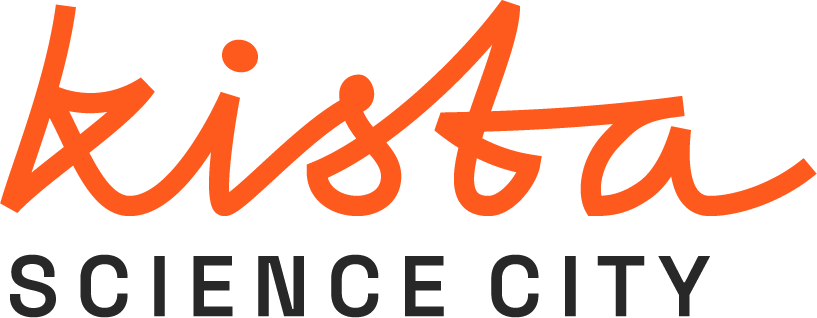The future of mobility will mean new solutions for getting to your destinations. Individual vehicles will become less frequent as we look to more sustainable solutions for mobility, and instead we will see public transport and ridesharing solutions picking up the slack. New solutions for the last mile are launched and tested all the time. One such test was the Delta project in Kista Science City.
The Delta project explored on-demand, last-mile solutions for public transport. Electric cars took users from door to door or connected to public transport hubs in Kista. Booking the ride was done through an app.
As the test was conducted in the autumn of 2020, some constraints had to be added to the test, and the mobility of individuals wasn’t as widespread as usual, but the results are nonetheless promising. In a workshop in January of 2021 the lessons from the tests were presented and we are happy to share them with you.
To set the stage for the project, the projection is that within 10-15 years, connected self-driving vehicles will with all likelihood be a backbone of the modern public transport system. The vehicles used in the Delta project weren’t self-driving, but the concept is made for that context. This also means that when planning new areas for development, preparations should be made both for self-driving solutions in general and ridesharing, on-demand solutions. The latter is something we most likely see more of during those hours where passengers are few and far between, like late nights.
As we look to the lessons learned in the Delta project, we see that the solution tested was mainly used during morning commutes and in the afternoon. As our users were mainly working in Kista, this is not surprising. The commute to and from the workplace, travelling between a public transport hub and the office, seems to be the main reason for utilizing this service. But as this is a last-mile solution, where the alternative to riding is just walking, one thing became evident: having to wait for the ride or not knowing when it would arrive made users cancel their ride. This is important to keep in mind for future implementations of this kind of transport system.
– The on-demand trial from Delta, from technological and customer experience standpoints, is aimed at developing future combined services using free floating on-demand autonomous vehicles, says Sheherazade Zekri, Director New Mobility Services at Keolis.
The big question that needs to be addressed before last-mile solutions of this kind can be rolled out, is the financing. Most users were hesitant to pay for a service like this and wanted it to be included in either the general public transport system, or possibly by their employer or by the real estate company who owns the office building. The business model has been scrutinized and different suggestions have been made, but this is certainly an area that needs to be explored in more detail.
As we look at the bigger picture, with data from a world-wide survey done by Ericsson, we see some interesting patterns in the way people are commuting that fits well with the Delta project and what we learned there. Ride-sharing solutions are popping up in several cities around the globe, and time-efficiency is now the second most important factor when choosing your mode of transportation, after convenience.
The vehicles used for Delta were small, mainly due to the global pandemic putting constraints on how many passengers were prudent to have in one car, but in the evaluations most users were positive to sharing a ride with others. This is something that fits well in with the bigger picture from around the world. Savvy commuters are able to create their own “bubble” while commuting. One large part of this is using digital solutions, listening to music or podcasts, checking social media and so on in order to block out the world around them. This also means that savvy commuters are more satisfied with their commute, even when using traditional modes of public transportation. Being connected in this way also means they are more up to date regarding possible delays or interruptions of services and can more efficiently switch to another mode of transport or take a different route.
– Everyone can relate to the feeling of wasting precious hours every week on a car or a train. So, it is very inspiring to see how some people make the most out of the time when they transition between home and work roles. We have created a unique benchmark to show the benefits of mobile Internet access for a better commuting experience and understand what consumers really want in the future in terms of safety, convenience and entertainment, says Andres Laya, Senior Researcher at Ericsson ConsumerLab.
All in all, attitudes are on the side of the Delta project. Globally, both commuters and city planners agree that ridesharing will contribute to less congestion and reductions of emissions. At the same time, the current opinion is that the private cars will still be needed to some extent, which in part goes against the first opinion. Ridesharing, when it works and is efficient, on-time, convenient and quick will be able to pick up much of the traffic volumes of private cars.
People have come to appreciate the time saved from not commuting every weekday and it is expected that many will continue working from home after the restrictions are lifted. New mobility solutions need to elevate the user experience and allow them to use the travel time to their benefit. For this purpose, connectivity will provide people with the ability to create a better experience for themselves.
Making sure this is the case will be up to projects like Delta.
– The Delta project provided excellent data for how ridesharing last-mile solutions can work in practice and what commuters expect from services like that. It’s been a privilege to assist in this research and the lessons learned have already pointed at some interesting new ways for continued research, development and testing, says Eleonor Sjödin Turah, project manager at Kista Science City.
Related Articles
December 9, 2025
Understanding online risks: Lisa Kaati’s research at DSV in Kista
The boundaries of conflict are shifting. Today, national security isn’t just…



